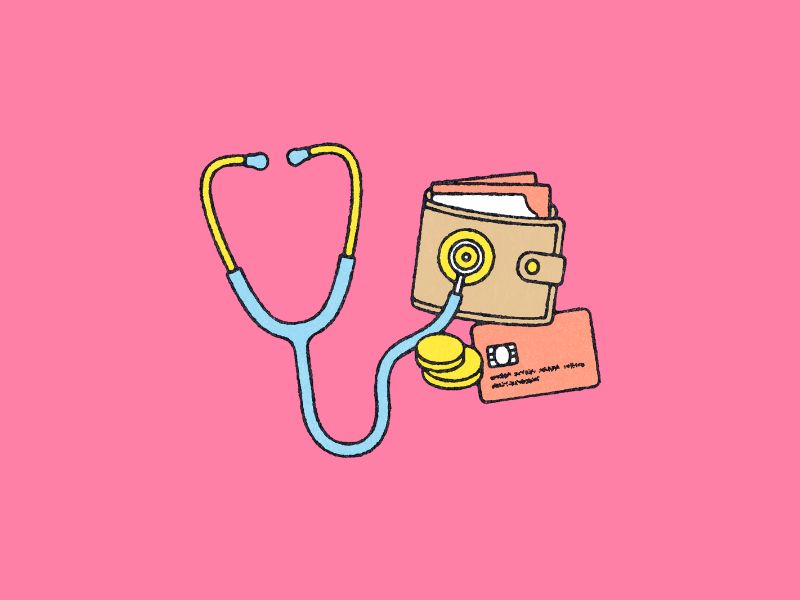
How much does a loan affect your credit score in the UK?
Wondering how a loan impacts your credit score in the UK? Learn how loans affect your credit health, from short-term dips to long-term benefits.
If you’re wondering, “How much does a loan affect your credit score in the UK?” there’s no one-size-fits-all answer. It’s not a simple case of saying that a loan will knock a certain number of points off your credit score. In fact, using credit and paying it off on time can actually increase your score over time.
So, here we’ll help you understand the different factors that influence your credit score over the entire term of the loan. We can’t assign exact numbers as this will depend on where you get your score, but we’ll look at the potential positive and negative effects a loan could have on your credit score when you apply, while you make repayments, and when you pay it off in full.
Can a loan affect or change your credit score?
A loan is a form of credit, which means it appears on the credit report that forms the basis of your credit score. Like some of the other information that’s collected and recorded on your report, your loan has the potential to raise or lower your score.
The biggest deciding factor in how a loan affects your credit score is the way you manage personal loan repayments. That being said, taking out a loan might lead to some small but noticeable changes to your credit score from the start.
Note: To decrease the risk of impacting your credit score (and other negative consequences), it’s really important to make sure you can afford the repayments and interest before you apply for a personal loan, mortgage, car finance, or any other type of instalment credit.
Let’s start by looking at the ways a new loan can affect your credit score.
Understanding the effects of loans on your credit score
How a new loan can lower your credit score
When you apply for a loan, the lender does a ‘hard’ credit check to review your financial history and determine whether you’ll be able to make repayments reliably.
During this check, they’ll see a full list of your recent financial activity. This includes credit accounts, your repayment history, and public record information like your home address on the Electoral Roll (also called the Electoral Register) and any CCJs you have against your name.
Every hard search a lender performs leaves a footprint on your credit report. This shows other prospective lenders that you’ve applied for credit elsewhere.
Having a hard search on your report is not always a problem, but it can slightly lower your credit score temporarily afterwards. What’s more, if you pick up several hard checks in a short period of time, lenders can take it as a sign that you need to borrow a large amount of money quickly, or that you’re being declined for credit, which can make them more reluctant to accept your application because it seems like more of a risk.
Steps you can take: To minimise the potential negative effect of applying for a loan, a good rule of thumb is to limit yourself to about 10 applications for credit per year, or roughly one per month. If you want to compare the rates you’d be offered with different lenders to find your best option, it can be a good idea to check that you’re making a speculative application rather than a formal one. Speculative applications only involve a ‘soft’ check (also called a ‘soft search’).
How a new loan can start to raise your credit score
It’s also worth remembering that using credit can be a good thing if you’re trying to build your credit history, and a new loan can also have a positive effect on your credit score.
If you’ve only used a credit card in the past, for example, a loan adds a new line of credit to your report. This is called diversifying your credit mix, and it can reassure future lenders that you’re able to use and manage different types of credit.
People who successfully use a variety of different accounts, including both revolving credit (i.e. credit cards, where you use the credit, pay it off, and then use it again) and instalment credit (i.e. loans, where you pay off the balance incrementally), tend to have higher credit scores.
In summary: You won’t necessarily see a big change to your credit score when you first take out your loan, but be aware that a slight shift, and potentially a slight drop as a result of the hard credit check, is possible.
What happens to a credit score while you’re paying off a loan?
Once you have your loan, the way you manage your money and repayments can have a huge effect on your credit score. The dates when you make the repayments and the amount you repay can both have an effect. Let’s start with the good news.
The best way to build up your credit score and take your credit rating to “good” or “excellent” is to make the repayments on your existing credit (like your loan) on time and in full. If you do this, the loan repayments will play a crucial role in improving your credit score. Every month you pay on time and in full is evidence that you’re using credit you can afford and you’re not in financial difficulty.
On the other hand, if you don’t stay on top of your loan repayments, the consequences for your credit score can be very serious. And while managing the repayments successfully means you’ll see a steady improvement, missing a payment can have a sudden impact that can drop your credit rating steeply from one month to the next.
If you start to miss loan repayments, lenders can add a sequence of “negative payment markers” to your credit report that can all lower your credit score:
Missed payments. Payments can be recorded as late from the point they’re one day overdue. This is reflected as a 1 marker on your credit report
Arrears. If you miss consecutive repayments, you’ll be “in arrears.” This is shown with further number markers (2-6) beside the payments on your credit report, and each one can make a dent in your credit score
Defaults. After several months of consecutive missed payments, your lender can mark the debt as defaulted. They’ll send you a notice of default to let you know their intention, and if you don’t respond and pay the debt within 14 days, it’ll be marked as a default on your credit report
Defaults can drastically lower your credit score, and they can continue to affect it even once you pay the debt. Although a “satisfied” default looks better than an unsatisfied one (and will avoid further steps like debt collection and County Court Judgments), it can still lower your credit score for as long as six years.
In summary: While you’re paying off your loan, timely payments in full can improve your credit score slightly month on month. On the other hand, missing even one payment can noticeably lower your credit score from one month to the next.
What happens to your credit score when you pay off your loan?
When you have a loan, mortgage, or any other form of instalment credit, your ultimate goal is to pay it off and avoid financial problems. However, it’s important to realise that settling your credit accounts won’t automatically give you a good credit score. In fact, there are two main reasons why the end of your credit agreement can slightly lower your credit score.
Closed financial accounts carry less weight than active ones: The credit reference agencies that keep your credit record will have fewer sources of fresh payment information once you pay off a loan. Although the old account and its positive payment history will still appear on your credit report for six years, it will have less influence over your credit score than credit accounts you’re still paying off, which are a better indication of what you can afford if you apply for new credit.
The average age of your credit accounts will decrease: Older accounts can carry more weight for your credit score than newer ones, so if you pay off a loan (or even close a credit card) that you’ve been using for a long time, there can be a large drop in this average age and a knock-on effect on your credit score.
Steps you can take: Remember, paying off a loan is a good thing. Although it can cause a short-term blip in your credit score, you could still be in a strong position if you apply for a new credit product. Lenders don’t see your credit score; they look at your credit report, your monthly outgoings (like your rent, student loans, insurance and utility payments, etc.), and your debt-to-income ratio. They’ll make their own assessments based on this information.
Loans and your credit score: Final word
There’s no fixed rule about how a loan affects your credit score because lenders interpret the information on your credit report in different ways.
However, if your credit score does decrease, you might find it harder to be accepted for new credit, and the deals that lenders offer you might not be as competitive or affordable.
To avoid the potential negative impact of a loan on your credit score (even if it’s just a few points), it can be a good idea to:
Limit your applications for new credit. If you want to compare your options, use the enquiry option when possible and hold off on reapplying if your application is rejected until you can identify the reason.
Make your loan repayments on time and in full every month to build up positive payment markers on your credit report.
Expect (and endure) a short-term dip in your credit score once you pay off your loan.
Know your file with Checkmyfile
Whatever your number, whatever your goal, the first step towards growing is knowing. With Checkmyfile you get the most detailed credit report on offer. Captured in one convenient spot. Check your file
